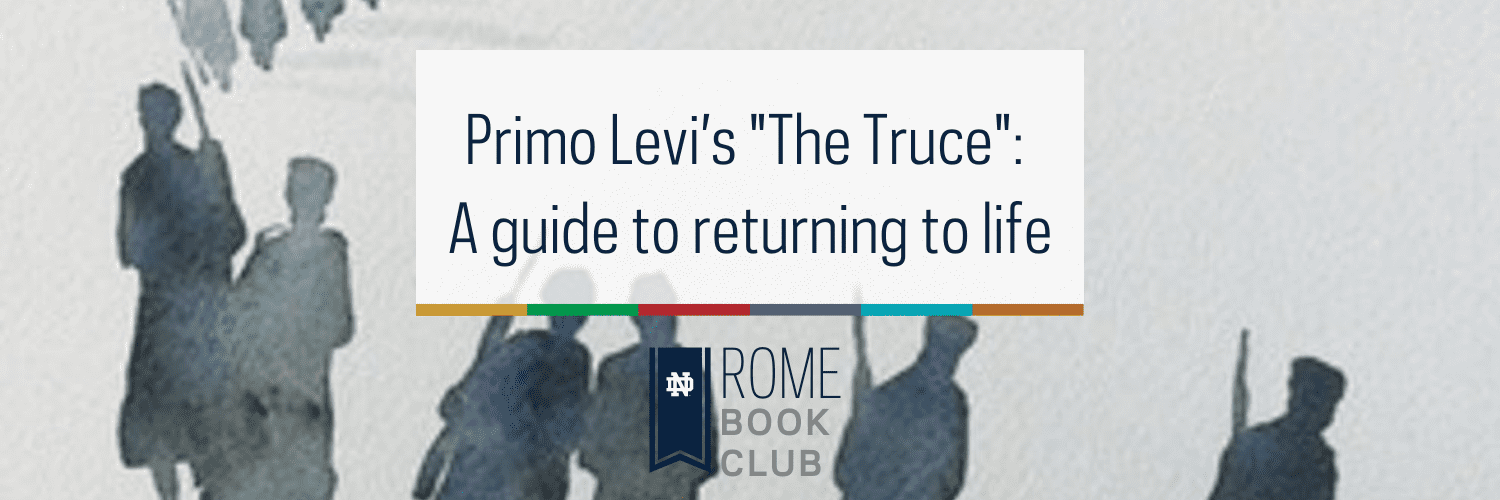The Reawakening

One of the meanings contained in the title of the novel is the idea of suspension of moral judgement. This is not to say that The Truce is a novel of forgiveness: rather these questions of guilt, retribution, expiation and so on are put temporarily to one side to allow other ideas and feelings to flourish. The first task after an interruption to life, the novel suggests, is a form of accounting. Basic facts must be established and accounted for. The next task is re-enchantment: fitting these facts, without denying or trying to mitigate their brutality, into a world that is fit for living in.
The world after the War must be reinvented, from the ground up. Narration is the key to this process. Throughout the novel, Levi is interested in the way external material realities and experiences take on internal, symbolic forms: literal hunger and psychological hunger, bartering and empathic exchange, bodily and spiritual forms of death. The novel is filled with small, apparently insignificant or humorous narratives, which play out, in miniature, the work of restoration and rebuilding which is required of survivors.
The Return
No traveler is the same at the end of a journey, and no return is absolute. The body can be in one place while the mind is in another.
Two Journeys
How The Truce recounts two parallel journeys: an external one across Europe, and an internal psychological journey from death to life, nothingness to plenitude.
The Reawakening
What The Truce can teach us about negotiating huge and traumatic experiences.
Additional Resources
In this last meeting we will focus on “Heading South,” “Heading North,” “A Little Hen,” “Old Roads,” “The Forest and the Path,” “Vacation,” “Theater,” “From Starye Droghi to Iasi,” “From Iasi to the Line,” and “The Reawakening” (100 pages).
View the Event
Subscribe to the ThinkND podcast on Apple, Spotify, or Google.
Featured Speakers:
- Barry McCrea, Professor of English, Donald R. Keough Family Professor of Irish Studies, Concurrent Professor of Romance Languages and Literatures, Concurrent Professor of Irish Language and Literature, University of Notre Dame
